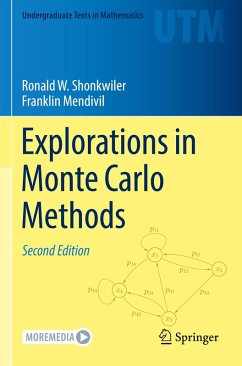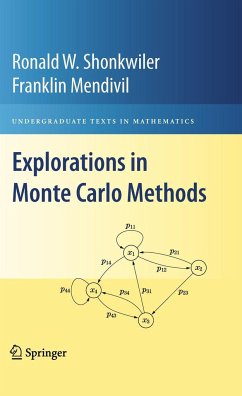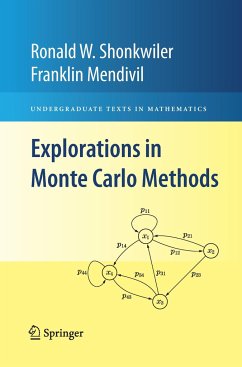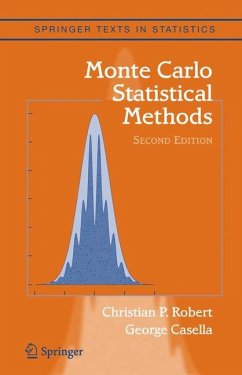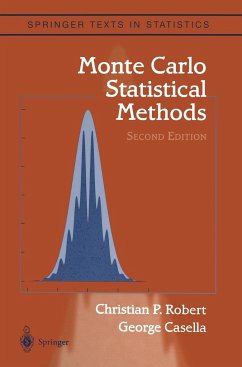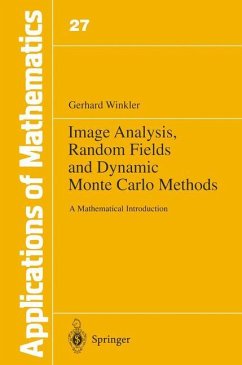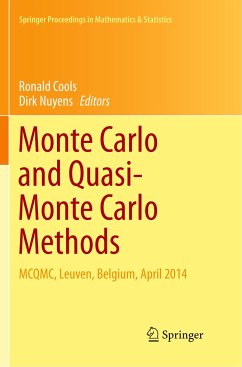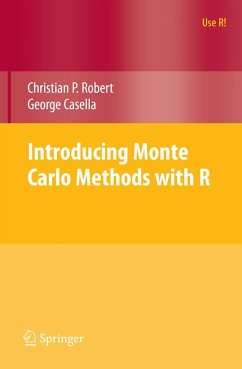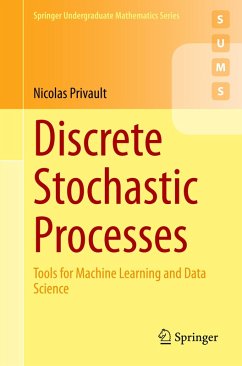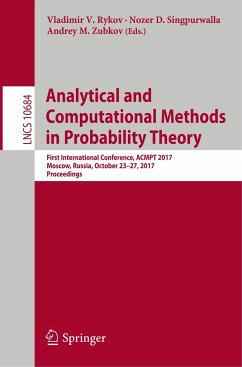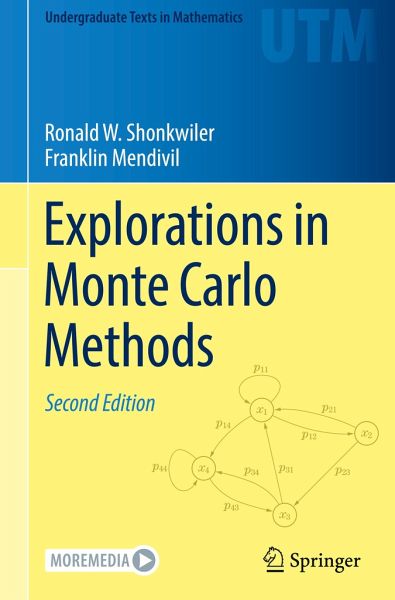
Explorations in Monte Carlo Methods
Versandkostenfrei!
Versandfertig in 6-10 Tagen
53,99 €
inkl. MwSt.
Weitere Ausgaben:

PAYBACK Punkte
27 °P sammeln!
Monte Carlo Methods are among the most used, and useful, computational tools available today. They provide efficient and practical algorithms to solve a wide range of scientific and engineering problems in dozens of areas many of which are covered in this text. These include simulation, optimization, finance, statistical mechanics, birth and death processes, Bayesian inference, quadrature, gambling systems and more.This text is for students of engineering, science, economics and mathematics who want to learn about Monte Carlo methods but have only a passing acquaintance with probability theory...
Monte Carlo Methods are among the most used, and useful, computational tools available today. They provide efficient and practical algorithms to solve a wide range of scientific and engineering problems in dozens of areas many of which are covered in this text. These include simulation, optimization, finance, statistical mechanics, birth and death processes, Bayesian inference, quadrature, gambling systems and more.
This text is for students of engineering, science, economics and mathematics who want to learn about Monte Carlo methods but have only a passing acquaintance with probability theory. The probability needed to understand the material is developed within the text itself in a direct manner using Monte Carlo experiments for reinforcement. There is a prerequisite of at least one year of calculus and a semester of matrix algebra.
Each new idea is carefully motivated by a realistic problem, thus leading to insights into probability theory via examples and numerical simulations. Programming exercises are integrated throughout the text as the primary vehicle for learning the material. All examples in the text are coded in Python as a representative language; the logic is sufficiently clear so as to be easily translated into any other language. Further, Python scripts for each worked example are freely accessible for each chapter. Along the way, most of the basic theory of probability is developed in order to illuminate the solutions to the questions posed. One of the strongest features of the book is the wealth of completely solved example problems. These provide the reader with a sourcebook to follow towards the solution of their own computational problems. Each chapter ends with a large collection of homework problems illustrating and directing the material.
This book is suitable as a textbook for students of engineering, finance, and the sciences as well as mathematics. The problem-oriented approach makes it ideal for an applied course in basic probability as well as for a more specialized course in Monte Carlo Methods. Topics include probability distributions, probability calculations, sampling, counting combinatorial objects, Markov chains, random walks, simulated annealing, genetic algorithms, option pricing, gamblers ruin, statistical mechanics, random number generation, Bayesian Inference, Gibbs Sampling and Monte Carlo integration.
This text is for students of engineering, science, economics and mathematics who want to learn about Monte Carlo methods but have only a passing acquaintance with probability theory. The probability needed to understand the material is developed within the text itself in a direct manner using Monte Carlo experiments for reinforcement. There is a prerequisite of at least one year of calculus and a semester of matrix algebra.
Each new idea is carefully motivated by a realistic problem, thus leading to insights into probability theory via examples and numerical simulations. Programming exercises are integrated throughout the text as the primary vehicle for learning the material. All examples in the text are coded in Python as a representative language; the logic is sufficiently clear so as to be easily translated into any other language. Further, Python scripts for each worked example are freely accessible for each chapter. Along the way, most of the basic theory of probability is developed in order to illuminate the solutions to the questions posed. One of the strongest features of the book is the wealth of completely solved example problems. These provide the reader with a sourcebook to follow towards the solution of their own computational problems. Each chapter ends with a large collection of homework problems illustrating and directing the material.
This book is suitable as a textbook for students of engineering, finance, and the sciences as well as mathematics. The problem-oriented approach makes it ideal for an applied course in basic probability as well as for a more specialized course in Monte Carlo Methods. Topics include probability distributions, probability calculations, sampling, counting combinatorial objects, Markov chains, random walks, simulated annealing, genetic algorithms, option pricing, gamblers ruin, statistical mechanics, random number generation, Bayesian Inference, Gibbs Sampling and Monte Carlo integration.





